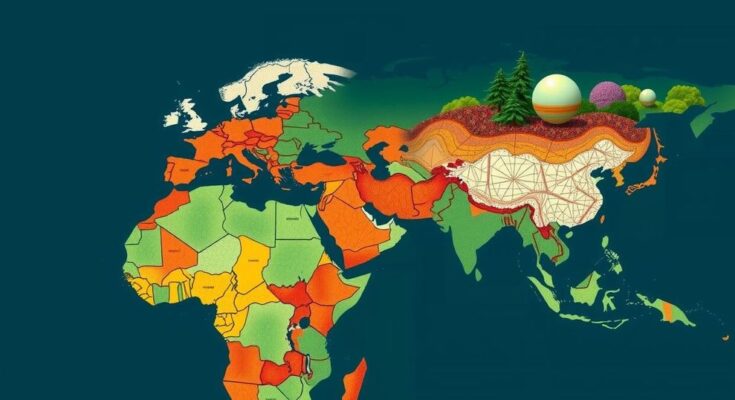In 2023, Cyclone Freddy impacted southern Malawi, leading to significant displacement and damage. Christopher Bingala, a farmer, received $750 in “loss and damage” compensation, an initiative designed to assist low-income countries facing climate change repercussions. At COP29, negotiations are underway for the allocation of $720 million pledged to support these vulnerable nations, though experts warn this amount may not be sufficient amidst escalating climate disasters.
In 2023, Cyclone Freddy devastated southern Malawi, displacing thousands and causing significant loss. Among those affected was Christopher Bingala, a subsistence farmer who lost his home and livestock due to the flooding. He received approximately $750 as part of a pioneering scheme for “loss and damage” compensation aimed at assisting those in low-income countries who are disproportionately impacted by climate change, despite contributing minimally to global emissions. This payment enabled Bingala to construct a new house, highlighting the urgent need for targeted assistance to those facing climate-related disasters.
At the COP29 climate summit in Baku, Azerbaijan, negotiators are focusing on the allocation of funds intended for climate-induced damages, as wealthy nations pledged approximately $720 million to address these pressing issues. However, experts express concern that this funding will not suffice to address the escalating impacts of climate disasters. Philip Davis, Prime Minister of the Bahamas, emphasized the need for accountability from wealthy countries that contribute significantly to climate change and the obligation to support affected nations.
The aftermath of Cyclone Freddy led to widespread relocation of families, with Bingala’s situation reflecting the dire consequences faced by low-income households lacking safety nets. Payments from the government of Scotland, aimed at providing immediate relief, were instrumental in helping families recover. Approximately 2,700 households in Malawi received similar payments, enabling them to resume their livelihoods and invest in education and agricultural resources. The initiative serves as a framework for a larger funding system to assist developing nations with minimal greenhouse gas emissions.
The increasing frequency of climatic events poses substantial financial burdens on nations with limited resources. For instance, after Hurricane Dorian in 2019, the national debt in the Bahamas rose significantly, illustrating the long-term economic repercussions of climate change. It is critical that funding mechanisms are established to address not only disaster recovery but also proactive measures like relocating at-risk communities to mitigate future losses against rising sea levels.
The concept of “loss and damage” financing emerges in response to the escalating impacts of climate change on vulnerable countries. It acknowledges that while low-income nations contribute minimally to climate change, they disproportionately suffer from its effects. The establishment of dedicated funds by wealthier countries to assist these nations is a pivotal shift in international climate policy. This funding aims to address immediate needs resulting from climate-related disasters, as well as to support sustainable recovery and adaptation efforts.
The implementation of “loss and damage” funding represents a critical step toward providing necessary assistance to impoverished nations grappling with the effects of climate change. As countries negotiate the allocation of pledged funds at the COP29 summit, it is imperative that these resources are disbursed effectively to address the impending challenges posed by increasingly frequent and severe climate disasters. The support for low-income countries, primarily through cash assistance and investment in infrastructure, is essential to fostering resilience and ensuring the well-being of affected families.
Original Source: www.upr.org




